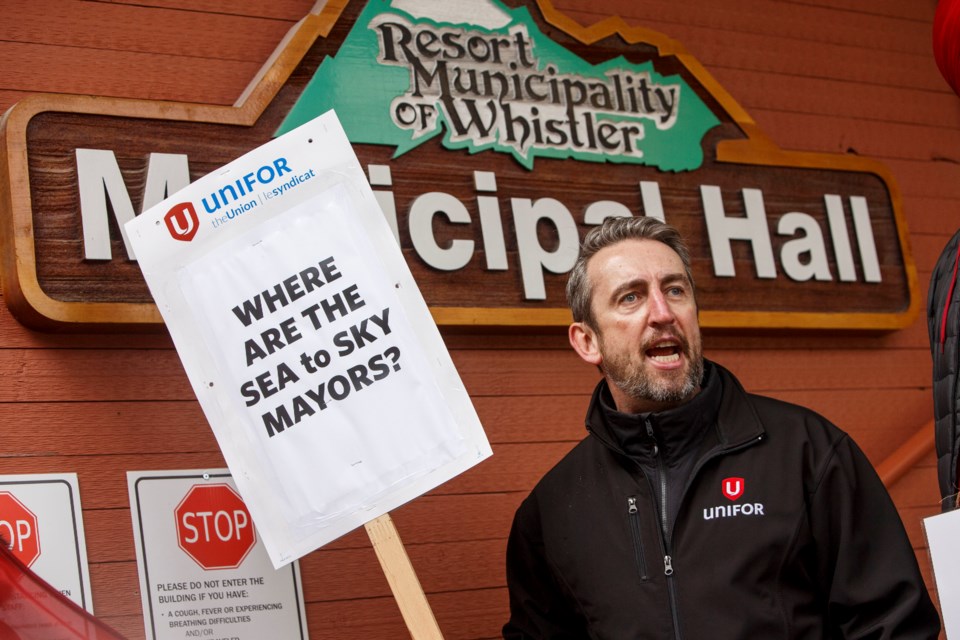After two lengthy days of bargaining, negotiations between the union representing striking Sea to Sky transit workers and their employer have once again stalled out, according to the union.
“Progress was made but there must be a roadmap to wage parity,” said Unifor’s western regional director Gavin McGarrigle in a release on Thursday evening.
According to the union, a proposal put forward by Pacific Western Transportation (PWT), the private company contracted by BC Transit to deliver transit services in the Sea to Sky, “does not allow union members on strike to reach wage parity (with transit workers in Metro Vancouver) by the end of the agreement,” the release said.
“It remains the sole outstanding point in negotiations.”
Unifor's push for wage parity comes on the heels of Coast Mountain Bus Company workers in Vancouver voting last week to ratify a one-year extension to its contract that included a three-per-cent wage bump for transit operators and a five-per-cent hike for skilled tradespeople, widening the gap between Sea to Sky transit workers even further.
In a release Friday morning, PWT said it offered a settlement package that included benefits for all employees paid entirely by the employer, as well a commitment to adopt Unifor's CAAT pension plan for all workers. The private contractor also offered fully retroactive wage increases in each year of the proposed deal, as well as a large signing bonus.
"The company is extremely disappointed in this outcome as we felt that progress was being made early in our discussions," PWT said in the release. "At this time, we are evaluating possible next steps as we remain committed to getting our employees back to work and serving the communities of Whistler, Squamish, and Pemberton."
More than 80 transit workers in Whistler, Squamish and Pemberton have been on strike since January 29.
“Wealthy families come from around the globe to Whistler, where transit workers can barely afford to make ends meet,” McGarrigle said in the release. “Our goal for the next collective agreement has been transparent from the start: transit workers should be able to afford to live in the region they serve.”
There are no future negotiation dates scheduled between the parties.
This story has been updated to add comments from Pacific Western Transportation.




